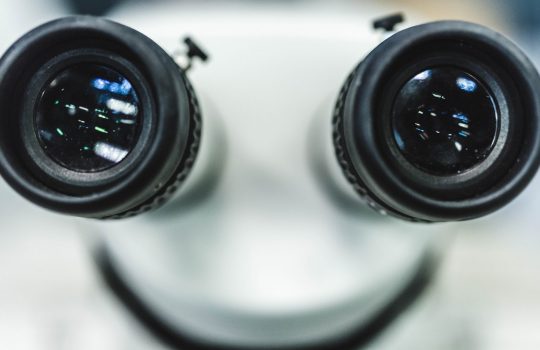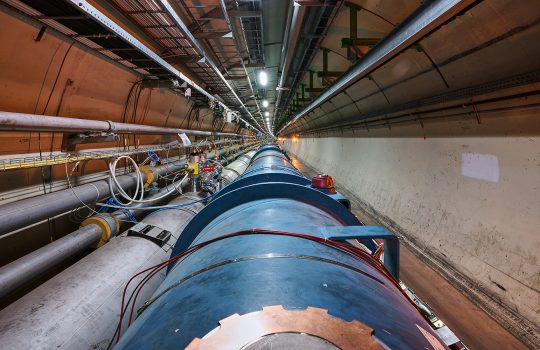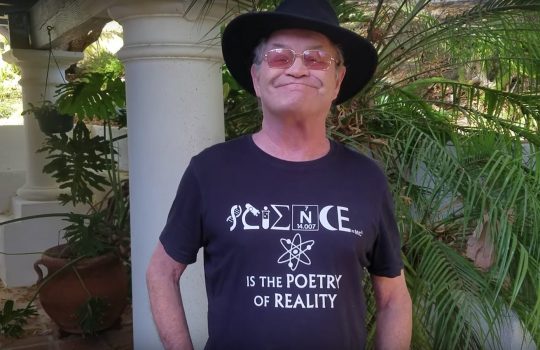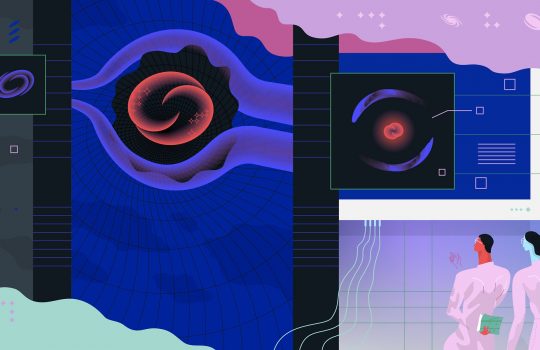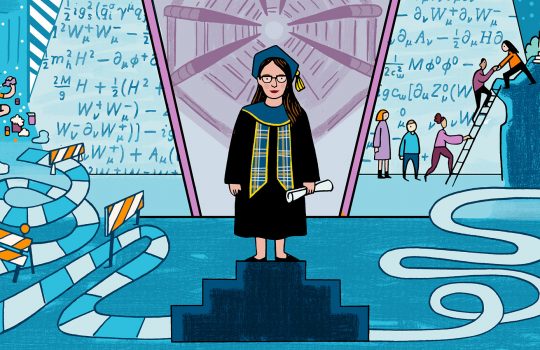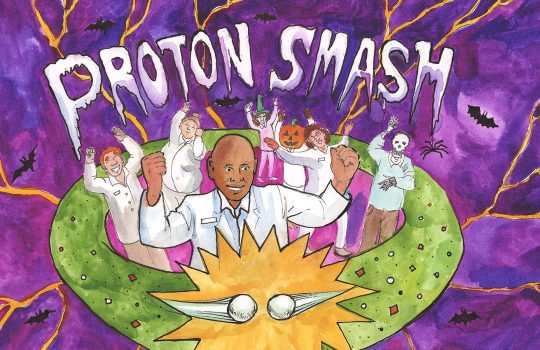Retired equipment lives on in new physics experiments
- Brookhaven
- Canada
- CDF
- CERN
- Deep Underground Neutrino Experiment
- DUNE
- DZero
- Gran Sasso
- ICARUS
- India
- Italy
- J-PARC
- Japan
- Jefferson Lab
- LBNF
- Long-Baseline Neutrino Facility
- LUX
- MINOS
- Muon g-2
- New York
- NOMAD
- QuarkNet
- SNOLAB
- South Dakota
- South Korea
- Super-Kamiokande
- T2K
- Tevatron
- UA1
Physicists often find thrifty, ingenious ways to reuse equipment and resources. What do you do about an 800-ton magnet originally used to discover new particles? Send it off on a months-long journey via truck, train and ship halfway across the world to detect oscillating particles called neutrinos, of course. It’s all part of the vast recycling network of the physics community.


